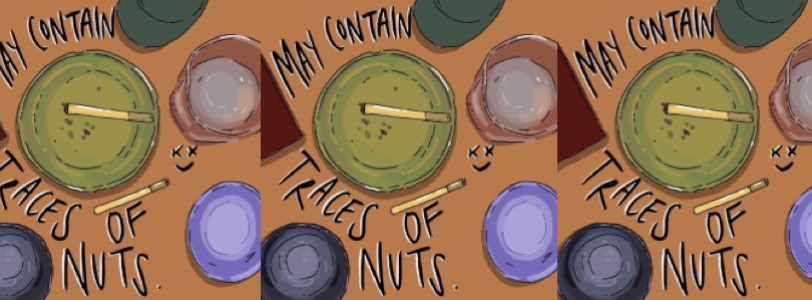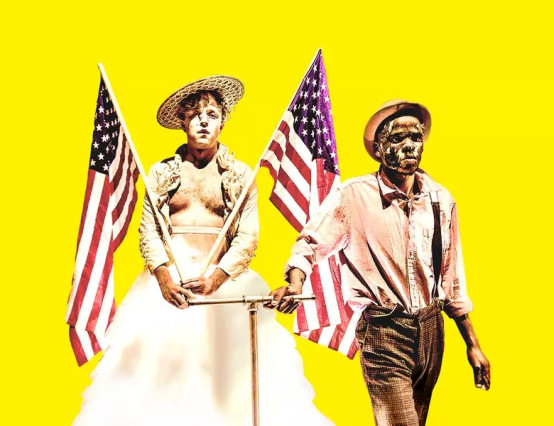A beautifully and brutally recognisable depiction of gender struggles in an intimate setting, ‘May Contain Traces of Nuts’ tells the story of five friends boozing and smoking as they commemorate the death of a friend. While the blurb focusses on Frankie’s experience as a trans-masc man in a middling town, it also feels like a true ensemble piece. By the end of the 50 minutes, there is no doubt that the characters of Jago, Mia, Shay, Digger, and Frankie are as complete as they are believable. The atmosphere is intense and personable, the audience feels privy to the inner workings of both their social dynamic and their weed-struck meandering minds.
Writer Celestine Stilwell has drawn a careful balance between ensuring that each figure, while realistic, is also still interesting enough to be observed. The beauty of this writing is exemplified by Stilwell’s plot exposure: he doesn’t over-explain the play’s context, the audience’s understanding grows as their questions about each character’s backstory drive their engagement throughout. Along with some comedic one-liners such as “Let’s not put gay and swallow in the same sentence” and “don’t come for my knitwear it’s all I have”, there are truly touching moments. Although some of Frankie’s stoned thoughts feel slightly contrived, such as the discussion of a dead badger and its subsequent musing over blood, the monologues were perfectly placed throughout, never bogging down the script but instead providing a fascinating insight into Frankie’s mind.
Charlie Howe’s direction fitted so seamlessly with the script that it is hard to know who to praise in regard to the intensity of the environment created. This is not, however, the mark of an absent director but rather the mark of one who can breathe such naturalism into a space that you forget the artificiality of theatre altogether. Howe used the thrust stage with great skill - scenes were never repetitive, movements were never forced, spaces were never wasted. Although there might have been moments when actors leaving the stage created a slight feeling of stagnation, there are few criticisms that can be dealt to Howe’s excellent hand.
The production also boasted of great technical design. The lighting, with its simple switches to red and white washes, was simple but incredible effective, while the addition of star projections transformed the space to add further fuel to the drugged musings of the characters. The soundspaces and effects were brilliantly merged with the script to create a sensual experience which broke down the barriers between audience and cast.
Leaving the cast to last is only to allow space to sing their praises. Thea Steadman-Jones has both comic timing and emotional depth, such brilliant physicality provides a completeness to their performance. Neither overplayed nor understated, they give the audience utter faith in their characterisation. Likewise, watching Bella Chapman might as well have been a private performance - such honesty did she bring to the role of Shay that it was as if she was speaking directly to each audience member. Most impressively, her outbursts of anger towards Shay’s boyfriend, Digger, felt truly warranted - a hard feat to achieve in intimate theatrical spaces. Tom Cain as Jago and Louise Coggrave as Mia were equal parts captivating and realistic, while Alfie Cook as Digger breathed a fresh perspective, if a flawed one, into the final moments of the play.
This depiction of small-town struggles faced with changing attitudes towards gender and sexuality hits the mark in every way. It is perfectly formed; true and real, while still maintaining a humour and sense of entertainment that engrossed its audience.
The Space Triplex - Aug 10-12, 14-19









0 Comments